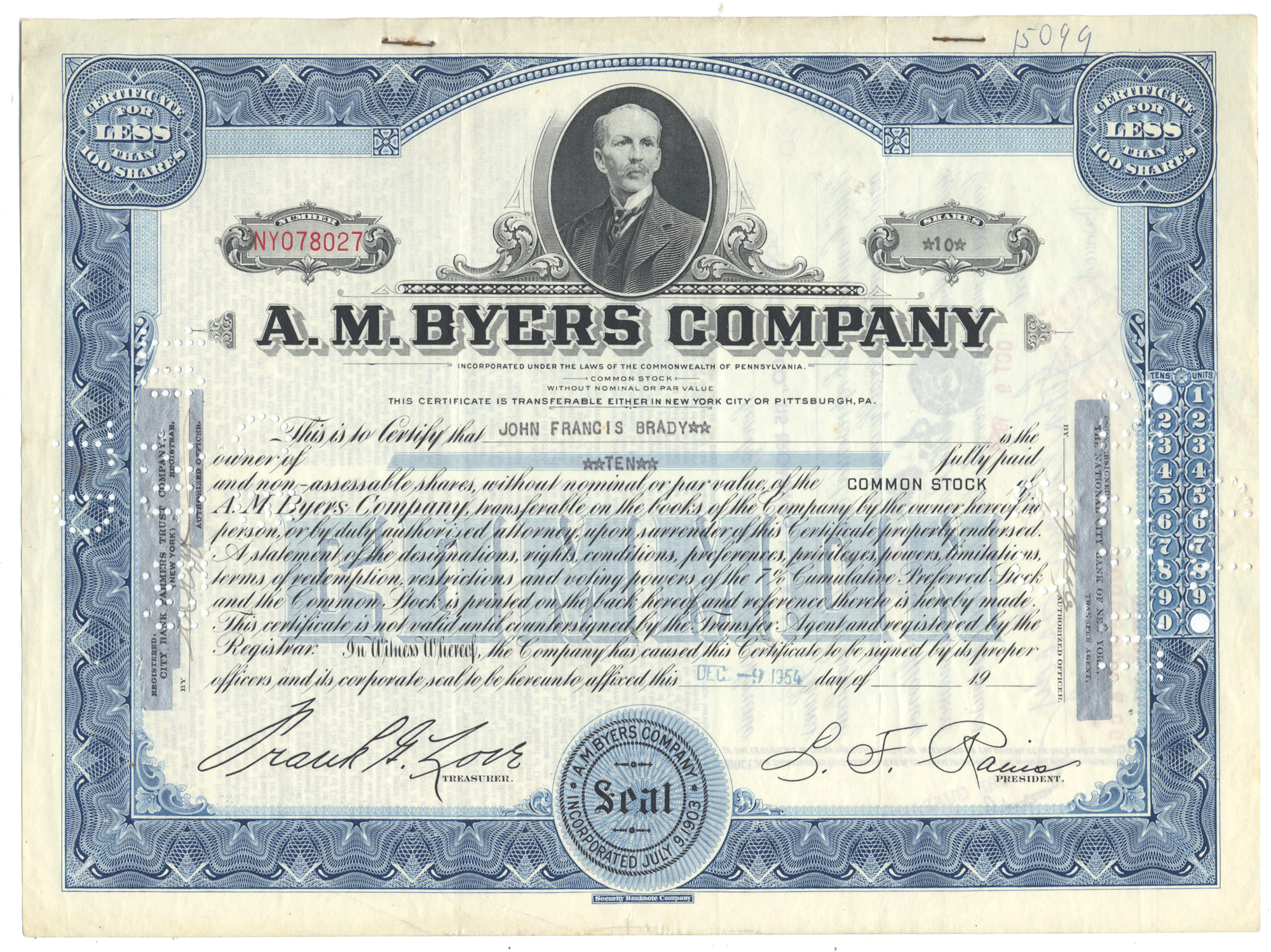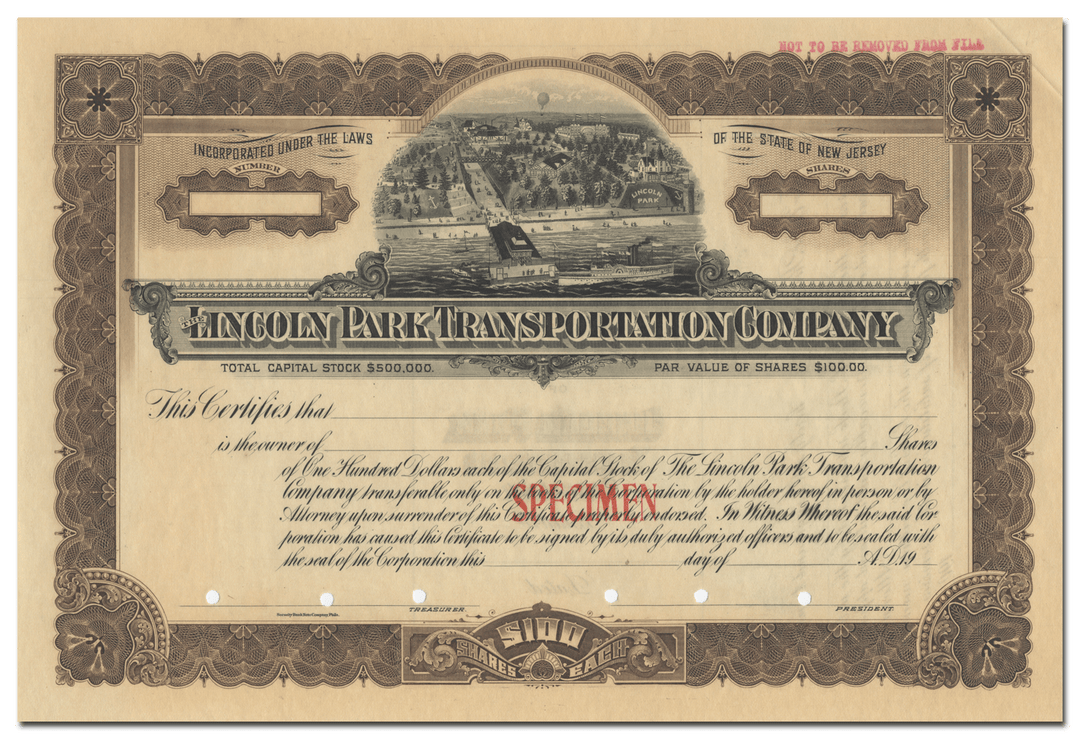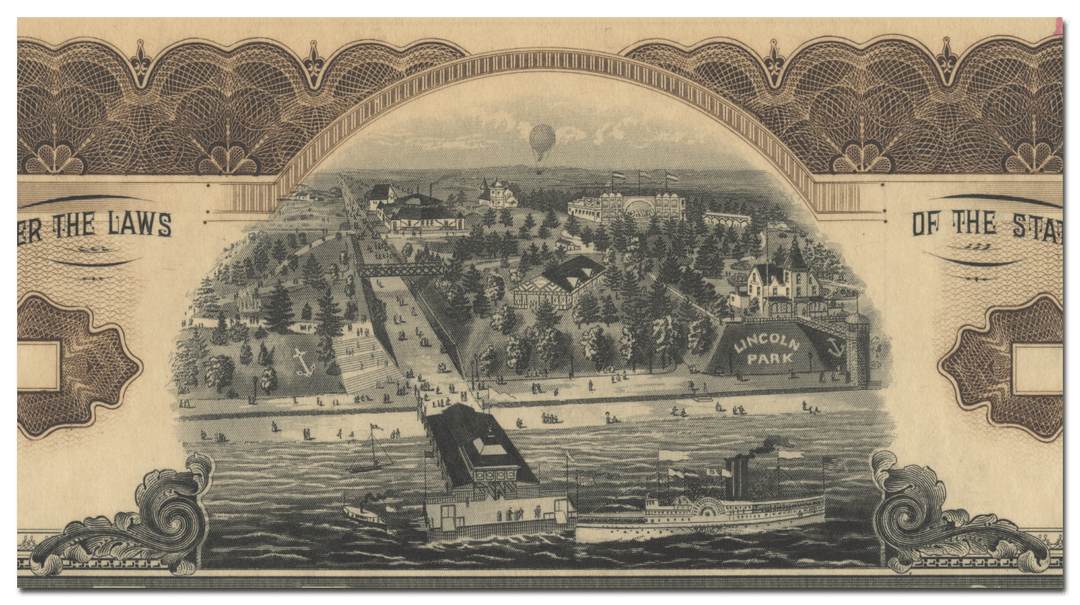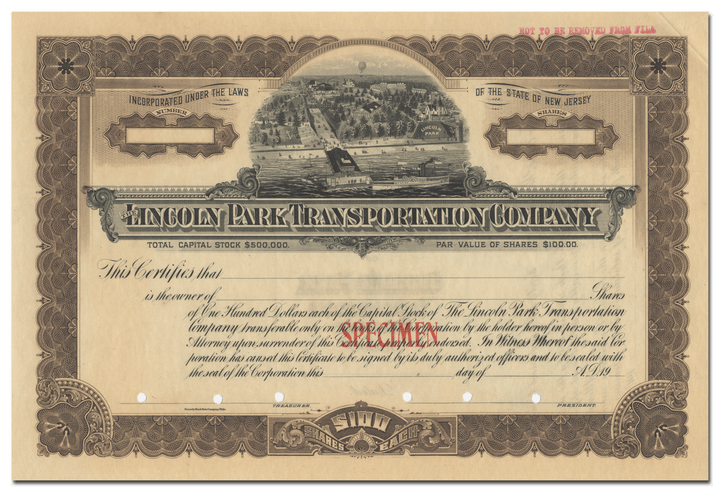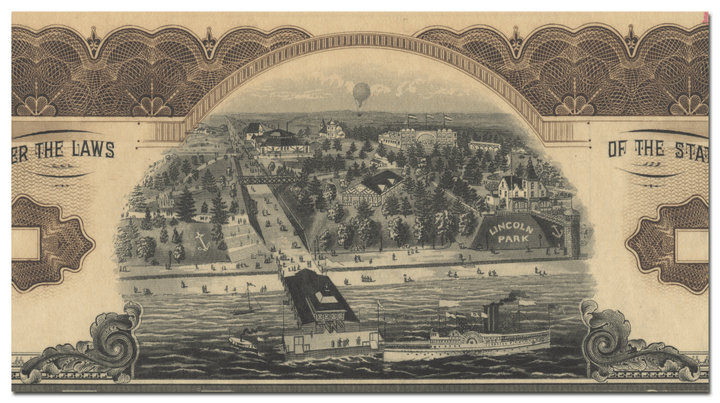Lincoln Park Transportation Company (New Jersey Trolley & Amusement Park)
- Guaranteed authentic document
- Orders over $75 ship FREE to U. S. addresses
Product Details
| Company | Lincoln Park Transportation Company |
| Certificate Type | Capital Stock |
| Date Issued | Specimen, circa early 1900's |
| Canceled | Yes |
| Printer | Security Bank Note Company |
| Signatures | NA |
| Approximate Size |
11 1/4" (w) by 7 1/2" (h) |
|
Product Images |
Show the exact certificate you will receive |
| Authentic | Yes |
| Additional Details | The vignette features Lincoln Park pier with an approaching paddlewheeler. The borough of Lincoln Park appears in the background with a hot air balloon hovering overhead. |
Historical Context
A Philadelphia businesman named Hughes was the promoter of an enterprise which proposed to build a trolley line from Philadelphia to Atlantic City. It was to run from Sixty-Third and Market Streets in Philadelphia, to a point on the Delaware River opposite a tract of land in Gloucester County, in New Jersey, known as Lincoln Park.
The purpose was to transport passengers to this point on the Pennsylvania shore (Dupont’s Farm,) then across or under the Delaware River to Lincoln Park, and along an almost straight line projected to Atlantic City. At the Atlantic City end it was intended to purchase a trolley which ran from Atlantic City to Pleasantvllle and to use its line and terminal for the ending of the route.
The whole plan was a vast one, involving millions of dollars. Links in the chain included the purchase of the Dupont farm, at about $7,500; a tract of land of some 30 or 35 acres, which was a disused amusement park on the river known as “Lincoln Park”; the rights of way between Lincoln Park and the Pleasantville terminal, and then a trolley line up Florida Avenue to the Boardwalk in Atlantic City.
A series of calamities struck Lincoln Park after the turn of the century. It lost its liquor license. The boat wharf and two ferries were lost in a fire a month after the 1904 season ended. For the next couple of years the park was not open to the public.
The park entered into receivership in 1905 and was sold to Colonel John I. Rogers, who held the mortgage on the park, the following year. Rogers and invested in the property along with Hughes during the projects planning phases. He bought it for $2,000 above the $57,000 debt the property carried in various liens and unpaid taxes.Rogers refurbished the resort and reopened it for the 1907 season with George Mason of Philadelphia as its manager. In addition to the former amusements, the park now offered a movie palace, an art gallery, and a small-gauge miniature railway for children. Lincoln Park also featured nightly balloon ascensions. The park was advertised as “Philadelphia’s Coney Island.” Two excursion boats ran between Philadelphia and Lincoln Park hourly.
The entire plan never got past the park's opening.
Related Collections
Additional Information
Certificates carry no value on any of today's financial indexes and no transfer of ownership is implied. All items offered are collectible in nature only. So, you can frame them, but you can't cash them in!
All of our pieces are original - we do not sell reproductions. If you ever find out that one of our pieces is not authentic, you may return it for a full refund of the purchase price and any associated shipping charges.




